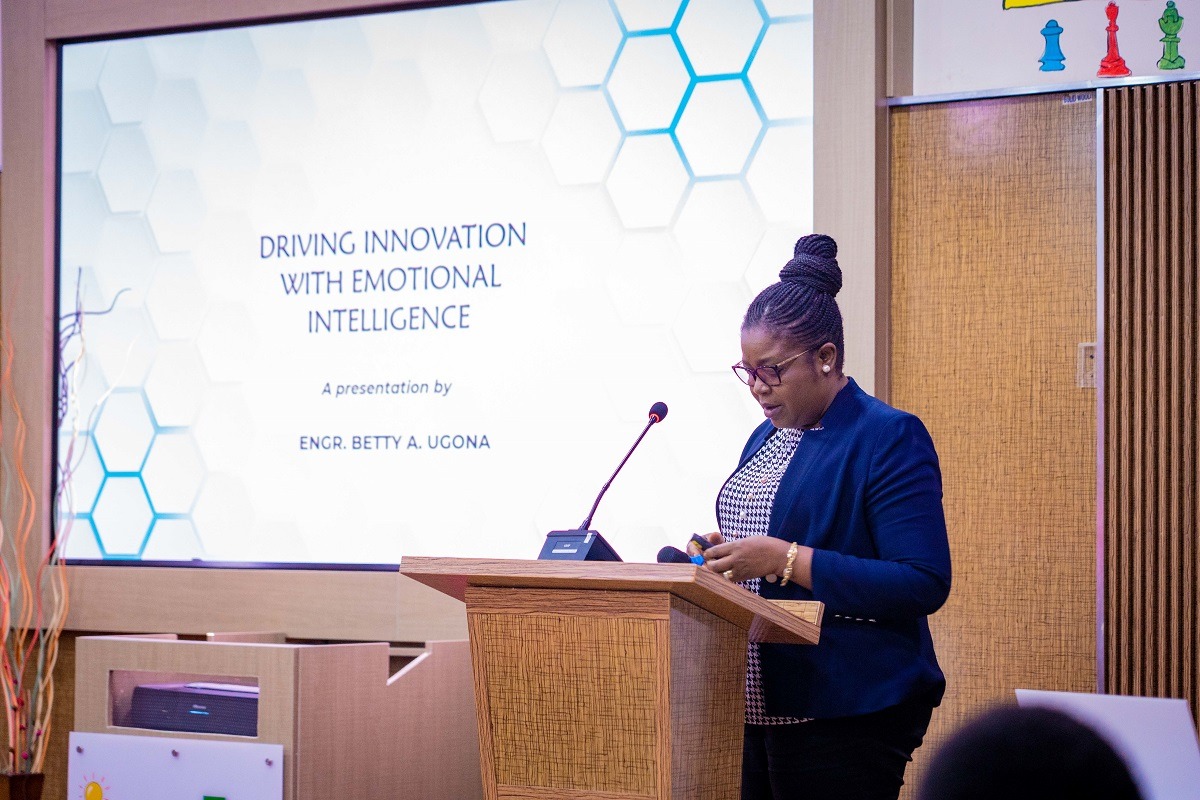The Research for Impact (R4i) Initiative, a collaborative effort between TETFund and Innov8 Hub, continues to spearhead a transformative impact within Nigerian Academia. With its primary objective being the enhancement of the innovative capabilities of lecturers and researchers in public tertiary institutions, R4i leverages accelerated innovation, research, and prototype development to address pressing societal challenges in alignment with the United Nations’ Sustainable Development Goals.
Within this initiative lies the course ‘Driving Emotional Intelligence,’ led by Engr. Betty Ugona. The significance of this course cannot be overstated, as it delves into the very essence of innovation and innovators. In teamwork, navigating the intricacies of the innovation ecosystem, and maintaining the emotional resilience necessary for achieving remarkable success, emotions are a critical factor.
Innovation: An Emotional Journey
- The upheaval caused by the COVID-19 pandemic unleashed a wave of stress, disorientation, chaos, emotional turmoil, and heightened aggression.
- Leaders across diverse domains found themselves grappling with extraordinary demands brought about by these unprecedented challenges.
- In lieu of rigid response plans, leaders now require adaptable behaviors and mindsets that prevent overreacting to mistakes and errors made by their teams.
- The emphasis for leaders should be on forward-thinking and innovation, seeking relevance and sustainability.
- In such circumstances, emotional intelligence emerges as a vital behavioral skill for leaders.
- Challenges, creative problem-solving, and the genesis of novel inventions all seek to contribute value to humanity.
- Emotions are intricately woven into these processes, shaping the journey from identifying challenges to their successful implementation.
- Interactions during the innovation process are not without friction and conflict, which are often typical when individuals collaborate closely.

The Essence of Emotional Innovation
Emotional innovation underscores the importance of mindfulness regarding emotions throughout the entire innovation process. It entails effectively engaging with stakeholders and effectively addressing challenges from initial problem identification to the eventual implementation of solutions. Creating an environment conducive to human-centered innovation stages is paramount. Organizations that strategically manage emotions cultivate a collaborative culture, thereby fostering superior innovation and value creation. Passionate alignment within teams further propels successful innovation.
Understanding Emotions
Emotion is a natural, instinctive state of mind influenced by one’s circumstances, mood, or interactions with others. Emotions can be categorized as either positive or negative.
Emotional Intelligence Defined
According to Daniel Goleman, the American psychologist who popularized the concept, emotional intelligence can be defined as “the ability to comprehend and manage one’s own emotions, as well as those of others around them.” Individuals with a high level of emotional intelligence possess an acute awareness of their emotions, grasp the significance of these emotions, and understand their impact on others. This ability empowers them to effectively manage emotions in ways that alleviate stress, enable effective communication, nurture empathy, surmount challenges, and mitigate conflicts.
Components of Emotional Intelligence
Emotional intelligence encompasses several key components:
- Self Awareness: Being in tune with one’s own emotional state.
- Self Regulation: The ability to exercise control over one’s emotions, adapt to situations, and maintain a positive outlook.
- Motivation: The drive and determination to achieve goals.
- Empathy: The capacity to understand and share the feelings of others.
- Social Skills: The ability to navigate social interactions effectively.
Competencies of Emotional Intelligence
- Self Awareness (Emotional self-awareness)
- Self Management (Emotional Self-control, Adaptability, Achievement Orientation, Positive Outlook)
- Social Awareness (Empathy, Organizational Awareness)
- Relationship Management (Influence, Coach and Mentor, Team Work, Conflict Management, and Inspirational Leadership)
Innovation and Emotional Intelligence: Conclusion
In hindsight, the R4i Initiative, with its profound emphasis on emotional intelligence, is charting a new course for innovation in the Nigerian academic landscape. By recognizing the pivotal role of emotions in the innovation process and equipping educators and researchers with the tools of emotional intelligence, R4i is contributing to a brighter, more innovative future for all.






